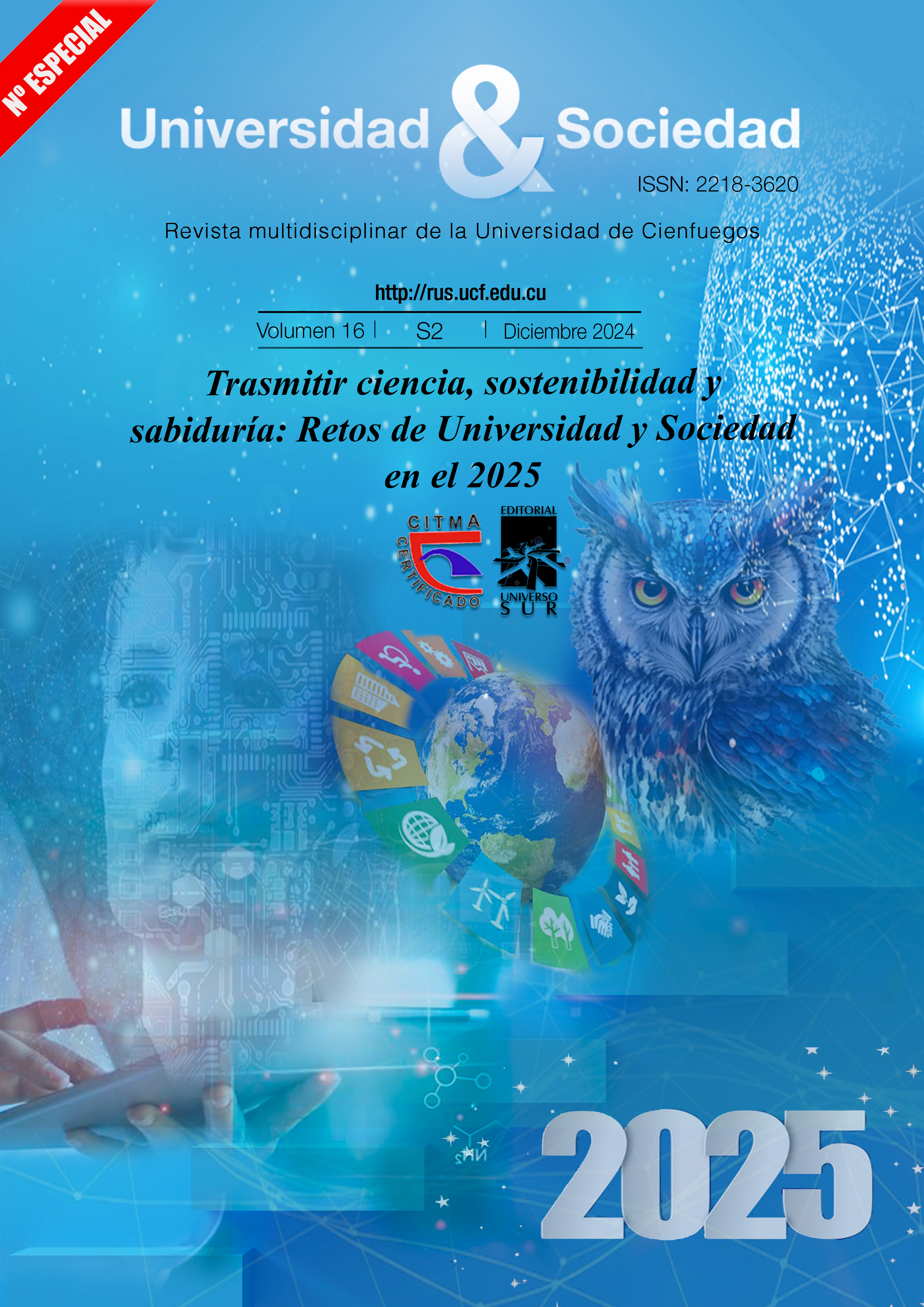Frequent cell phone use and its relationship to social skills development in college students: a multivariate perspective
Keywords:
Cell phone, Social skills, University studentsAbstract
The study aims to evaluate the frequency of cell phone use and its relationship with the development of social skills in university students. The multivariate HJ-Biplot technique was used, which graphically represents the study variables through the interpretation of the distance between points, the length of the vectors and the angles between them. The study was applied to a sample of 335 university students, the scale of problematic cell phone use and the scale of social skills were applied. The results indicated that students who used the cell phone for 1 to 2 hours a day had no effect on their social relationships and did not represent a significant distraction, students who used it for 3 to 4 hours retained some emotional control and social development, students who used the cell phone for 5 to 6 hours began to have an influence on social interactions, Students who use the cell phone for 7 hours or more per day, the vectors of interpersonal problems, preoccupation and attachment to the cell phone are predominant, affecting social skills, their ability to handle stress and their efficient planning.
Downloads
Published
How to Cite
Issue
Section
License
Copyright (c) 2025 Editorial "Universo Sur"

This work is licensed under a Creative Commons Attribution-NonCommercial-NoDerivatives 4.0 International License.
La editorial "Universo Sur", de la Universidad de Cienfuegos, publica el contenido de la Revista "Universidad y Sociedad" bajo una Licencia Creative Commons Atribución-NoComercial-SinDerivar 4.0 Internacional.
© Podrá reproducirse, de forma parcial o total, el contenido de esta publicación, siempre que se haga de forma literal y se mencione la fuente.










